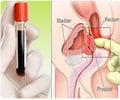The guideline formation process has been revised by American Cancer Society to attain better transparency, consistency, and rigor in creating guidance about cancer screening.

The process will incorporate a systematic evidence review that will use methods consistent with IOM standards, and the guidelines group will grade the strength of its recommendations. The guidelines will explicitly describe potential benefits and harms of screening and will articulate any differences between its recommendations and those of other groups and the reasons for those differences.
The new process will conclude with a formal review that will include opportunities for experts and professional organizations to comment on draft guidelines. Finally, the guideline process itself will be reviewed periodically by an independent advisory group to assure clarity, utility, and influence of the guidelines. There will be a formal review and rewriting of every ACS cancer screening guideline at least every five years.
"Historically, the ACS has convened ad hoc screening guideline groups to come up with its recommendations for methods of cancer screening," said Tim Byers, M.D., MPH, of the Colorado School of Public Health. Dr Byers headed the Guidelines Process Workgroup convened by the ACS Board of Directors in 2010 and co-authored the new report. "Although that approach has resulted in highly credible and useful guidelines, we saw that the ACS process could be improved in terms of consistency, transparency, scientific rigor, and communications. This new process should ensure that ACS will remain the national leader in creating and communicating trustworthy information to guide clinical practice, personal choices, and public policy about cancer screening."
Source-Eurekalert















